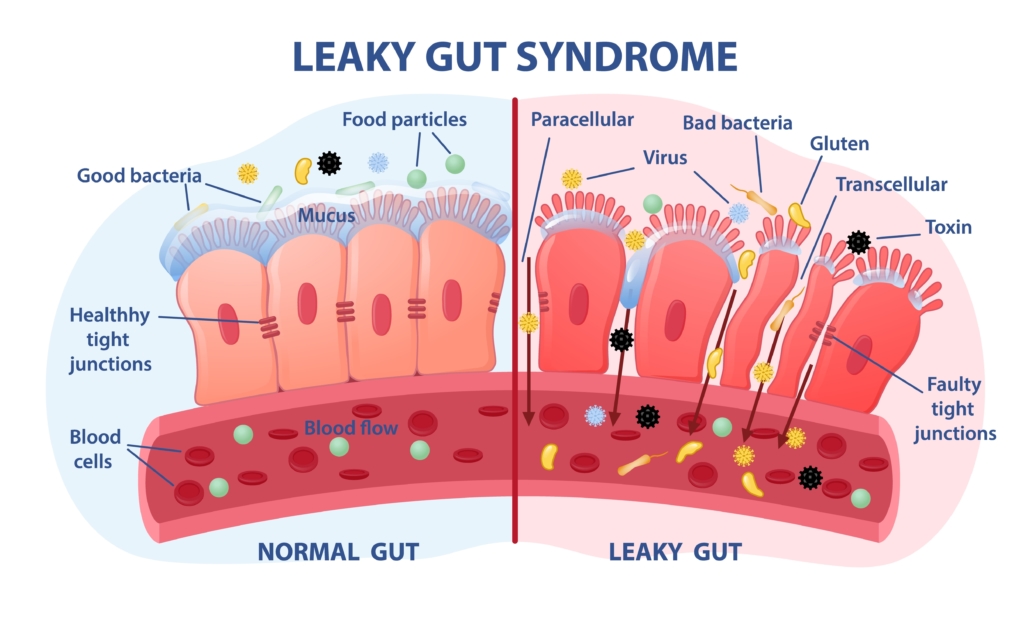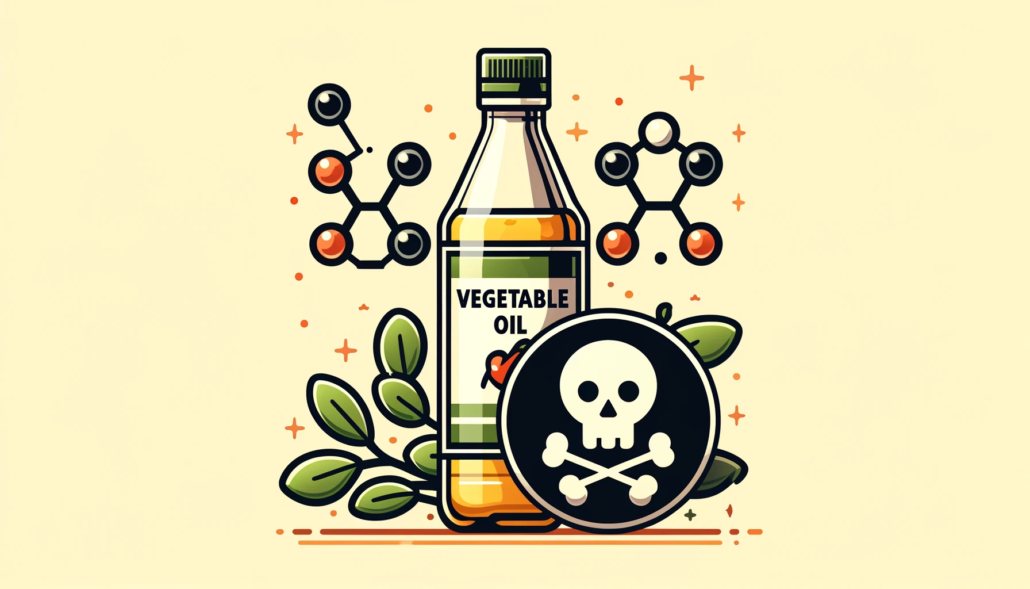We include products in articles we think are useful for our readers. If you buy products or services through links on our website, we may earn a small commission.
Saponins: Everything You Need to Know

Table of Contents
Plants are often touted as the healthiest foods on the planet. But what most people don’t know is that many plant foods contain hidden chemicals, like saponins, that can actually do more harm than good.
These naturally occurring chemicals are known as plant toxins and antinutrients. They exist to ward off predators and protect plants from harm. One of the most common plant toxins is saponins.
Keep reading to learn about saponins and how they can affect your health.
What Are Saponins?
Saponins are a group of bitter-tasting chemicals that naturally occur in plants. They get their name from their ability to form soap-like foams in water. The latin word for soap is sapo. Interestingly, saponins are responsible for the foamy substance you see when you soak beans.
All parts of plants contain at least some saponins. This includes flowers, leaves, stems, bark, seeds, and fruit. However, saponins are mostly concentrated in plant roots.
Plants synthesize and accumulate saponins during normal growth and development. But saponin levels often rise in response to stress such as a pathogen attack.
Like all living things, plants don’t want to be eaten. Saponins are a plant’s defense mechanism. Saponins possess antimicrobial, antifungal, antiparasitic, insecticidal, and antinutrient properties to protect plants from predators.
A Natural Pesticide
Saponins are natural pesticides and contribute to the 5,000 to 10,000 natural pesticides you consume everyday.
One study found that saponins can kill insects by penetrating the outer surface of larvae and destroying the intestines of insects after consumption.
This gruesome process highlights the powerful properties of saponins. However, eating saponins won’t kill humans, but they can cause negative consequences when overconsumed.
Where Do We Find Saponins?
Saponins are found in many plant-based foods. But they are also used commercially in the food, cosmetic, and pharmaceutical industries.
For example, saponins are the foaming agents in carbonated beverages and cosmetics. They also act as flavor modifiers for baked goods, beverages, chewing gum, candies, herbs, seasonings, and dietary supplements.
Some saponins also make up the ingredients of medications. The saponins in wild yam are used to synthesize steroids such as cortisone, progesterone, and pregnenolone.
Foods High in Saponins
Saponins primarily accumulate in legumes and grains. You can also find saponins in tea, onions, garlic, sugar beets, asparagus, sunflowers, yucca, tomatoes, and potatoes.
The content of saponins in foods varies depending on many factors such as plant age, species, water and light intake, and time of year.
The following foods contain high levels of saponins:
- Licorice root, 22.2 to 32.3 grams of saponins per 100 grams
- Soybeans, 3.9 to 5.6 grams of saponins per 100 grams
- Chickpeas, 3.6 to 5 grams of saponins per 100 grams
- Quinoa, up to 0.73 grams of saponins per 100 grams
- Spinach, around 0.5 grams of saponins per 100 grams
- Oats, 0.1 to 0.3 grams of saponins per 100 grams
Health Risks of Saponins
Eating a diet of foods high in saponins can increase your risk of health complications.
Saponin Toxicity
Saponins are toxic chemicals that protect healthy plants from insect, fungal, and bacterial pathogens. For this reason, ingesting foods that contain saponins can cause toxicity in the human body. However, severe poisoning is rare.
If you consume high levels of saponins, you may experience uncomfortable gastrointestinal side effects such as:
Increased Intestinal Permeability
In more severe cases, high doses of saponins can also contribute to leaky gut. This is known as increased intestinal permeability.
Because saponins bind with cholesterol, they interfere with the mucosa lining of the intestines. Though the effect of saponins alone on the gut is likely moderate, saponins in the diet are often combined with other plant toxins like lectins, gluten, and gliadin. This creates a cumulative risk.
The leakiness of the intestinal cell membrane allows molecules and water to enter and exit freely. This results in red blood cell swelling, which eventually causes the cell membrane to rupture.
Cracks or holes in the intestinal tract cause inflammation and can lead to the development of a variety of diseases and autoimmune disorders. The breakdown of red blood cells can also give rise to anemia.
People with the following diseases may be more susceptible to saponin-triggered red blood cell death:
- Type 2 diabetes
- Renal insufficiency
- Hemolytic uremic syndrome
- Sepsis
- Malaria
- Sickle cell disease
- Wilson’s disease
- Iron deficiency
- Malignancy
- Metabolic syndrome
- Phosphate depletion
Nutritional Deficiencies
Eating a diet rich in saponin foods can increase your risk of nutritional deficiencies. This is because saponins are antinutrients that prevent the absorption of various vitamins and minerals including:
They also impair digestive enzymes, which reduce your ability to digest and absorb proteins.
Low levels of magnesium are associated with diseases such as Alzheimer’s disease, type 2 diabetes, hypertension, and cardiovascular disease.
Iron deficiency can also lead to health complications, especially in pregnancy. Unfortunately, iron deficiency in pregnancy can cause placenta hypertrophy, premature delivery, low birth weight, and infant death.
Zinc deficiency can impair your immune system and lead to inflammation and tissue damage.
Vitamin A deficiency can affect a wide variety of bodily processes. Alarmingly, vitamin A deficiency is the main cause of preventable blindness worldwide. Adequate vitamin A levels are necessary for ocular function, bone development, reproductive health, immune function, and normal fetal development.
Inadequate vitamin E levels can increase your risk of infection, anemia, stunted growth, and poor outcomes during pregnancy.
Calcium deficiency can impair bone health and repair and increase your risk of osteoporosis.
Infertility
Research shows that saponins can have detrimental effects on fertility. In fact, some saponins possess abortifacient, anti-zygotic, and anti-implantation properties.
For example, intravenous administration of broomweed and agave saponins above 2-3 mg/kg body weight induced abortion and death in rabbits, goats, and cows. Other saponins have also shown to cause sterility and terminate pregnancies in rats and mice.
Interestingly, extracts of a saponin-containing plant called Mussaenda pubescens are used as a contraceptive in China.
Research shows that saponins have mixed results on fertility in humans. One study found that some saponins increase sperm motility and progression whereas others act as a spermicide.
Saponins may play a role in infertility because their chemical structure resembles that of reproductive hormones. This causes saponins to compete with hormones at receptors, which may disrupt hormone levels necessary for reproduction.
How to Reduce Saponins in Your Diet
There are many ways to lower your dietary intake of saponins and improve your health. Altering the methods you use to prepare your foods, and eating a diet that limits plant foods can have lasting benefits for your health.
Prepare Your Food Properly
You can reduce the saponins in foods using a variety of food preparation methods, including washing, cooking, and fermentation.
Washing quinoa with hot water can decrease the saponin content in seeds by up to 20%. Roasting quinoa flour can also promote saponin degradation. This reduces the bitter taste associated with saponins.
Heat treatment may also benefit the nutritional quality of many other foods. Research suggests that cooking legumes reduce the content of saponins. However, this may not be true for all foods.
Lastly, fermenting foods may provide the greatest reduction in saponins. Remarkably, one study found that fermentation may reduce the saponin content of foods by up to 92%.
Follow a Keto Diet
Following a keto diet can reduce your intake of plant toxins and antinutrients. This is because a keto diet revolves around healthy fats and proteins and limits carbohydrates such as grains and legumes.
The macronutrient ratios for a standard ketogenic diet fall within these ranges:
- 70-80% of calories from fats
- 15-30% of calories from protein
- 0-10% of calories from carbohydrates
You can enjoy the following foods on a keto diet:
- Red meat
- Organ meats
- Eggs
- Fish and seafood
- Full-fat dairy products
- Butter
- Ghee
- Beef tallow
- Coconut oil
- Olives
- Cucumbers
- Zucchini
- Cruciferous vegetables
- Lettuce
- Chives
- Berries
A keto diet can mend health problems associated with saponins by decreasing inflammation, providing essential nutrients, and improving fertility.
Another dietary option that cuts out all plant foods, and therefore all saponins, is the Carnivore Diet, which you can learn about here.
The Takeaway
Saponins are harmful chemicals that occur naturally in plant-based foods such as legumes and grains. Like phytates, saponins are antinutrients that interfere with the absorption of many vitamins and minerals. They also contain toxic properties that can damage the human body when overconsumed.
Limiting your consumption of saponins in foods can prevent the development of health complications such as toxicity, leaky gut, nutritional deficiencies, and infertility.
Eating a balanced and diverse keto diet that contains animal products such as eggs and liver can improve your nutritional intake while avoiding excessive exposure to plant toxins.






















